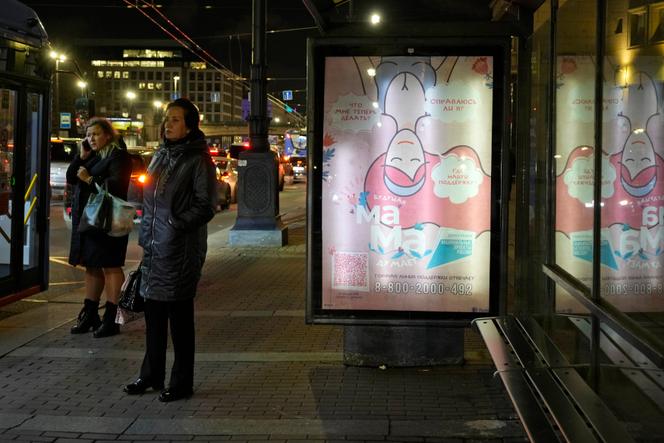


Long restricted to religious and ultraconservative circles, challenges to the right to abortion made a spectacular leap to the top of the Russian political agenda this autumn. While there is still no question of an outright ban, this right, acquired in 1920 before being briefly withdrawn several times, is gradually being curtailed in the name of "traditional values" and flagging demographics.
Last summer, Minister of Health Mikhail Murashko spoke of "a perverse trend (...) according to which women should first receive an education, have a career and ensure their material well-being before taking care of having children." Immediately afterward, he called for stricter controls on the sale of chemicals used to perform medical abortions.
According to critics of the right to abortion, the official figure for abortions performed in Russia (395,201 in 2022, which represents a 4% drop from 2021) is an underestimation due to incomplete control over the sale of drugs.
But it was mainly at the beginning of November that the subject was revived, when Vladimir Putin, in a discussion with members of civil society, referred to abortion as "an acute problem." The Russian president, visibly overwhelmed by the failure of his demographic policy, which he made a central theme when he came to power in 2000, lamented, "The state has, however, done a lot to support families." According to the authoritative statistical agency Rosstat, Russia had a population of 146,447,424 (including annexed Crimea) on January 1 – less than in 1999.
Although Putin has yet to mention any specific approaches, the remark was enough to spark discussion as well as a wide range of initiatives. In the Duma, the health committee adopted a number of recommendations aimed at restricting the right to abortion: a reduction of the legal waiting period from 12 to 8 weeks; the consent of the husband for married women; an extension of the mandatory reflection period, with the obligation to "listen to the fetal heartbeat"; and others.
For the time being, these recommendations have not been made into law, but some regions have taken the lead. Three of them – Mordovia, Tver and Kaliningrad – have already banned "incitement to abortion," punishable by fines, despite the vagueness of the concept. The Federation Council, the upper chamber of the Federal Assembly, has proposed a law extending the measure to the whole country.
In other regions (Tatarstan, Kursk, Crimea, Chelyabinsk), dozens of private clinics have voluntarily renounced their right to perform abortions. According to the authorities, no pressure was exerted, but these institutions simply demonstrated their desire to "contribute their brick to the demographic edifice."
You have 55% of this article left to read. The rest is for subscribers only.
